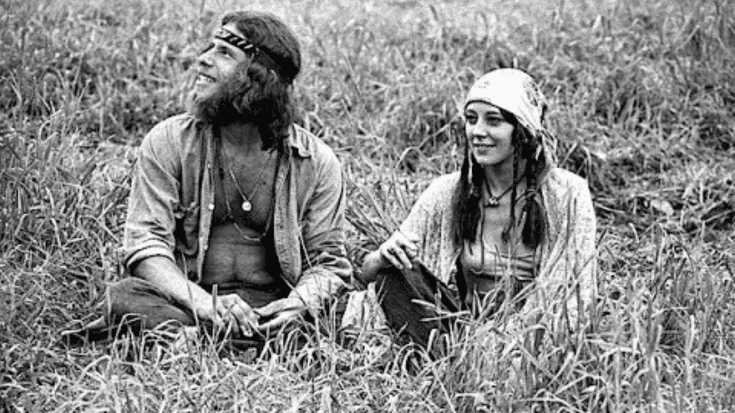10 Hippie Beliefs from the 60s That Didn’t Age Well

via David Hoffman / YouTube
The 1960s brought about a wave of hippie beliefs that promoted peace, love, and a rejection of the status quo. While some ideals shaped culture positively, others didn’t quite stand the test of time. Here’s a look at ten hippie beliefs from the 60s that now seem out of touch or flawed.
1. “Free Love” Will Solve Everything
The 60s ideal of “free love” aimed to break down traditional ideas around relationships, encouraging open connections without attachment. Many believed it would end jealousy and make people happier. However, it often led to hurt feelings and complicated dynamics, especially since few considered emotional consequences.
Over time, “free love” proved less liberating than expected, often creating relationship challenges. For many, the concept has aged poorly, as people now prioritize meaningful and emotionally secure relationships over the 60s’ freewheeling approach.
View this post on Instagram
2. “Turn On, Tune In, Drop Out”
Timothy Leary’s famous phrase encouraged people to use psychedelics to explore consciousness and reject conventional paths. For many, it promised freedom from society’s pressures. But as years went by, the effects of drug use weren’t always positive, leaving some with lasting issues instead of enlightenment.
The concept seemed appealing but proved risky, with addiction and mental health impacts affecting many who embraced it. Today, “turning on and dropping out” no longer holds the same promise, with society placing a higher value on stability and mental health.
3. Living Communally Will Fix Society
Many hippies believed communal living was a solution to materialism and isolation. Sharing everything seemed like a way to promote equality and break down selfishness. But in practice, shared resources often led to disputes, and organizing such groups proved more complicated than expected.
As the 60s ended, many communal experiments faded, revealing that this way of life wasn’t sustainable for most people. Today, the concept of shared living exists in smaller, more practical ways, but the grand 60s vision is seen as unrealistic by modern standards.
View this post on Instagram
4. Nature Can Meet All Our Needs
The 60s often idealized returning to nature, with many believing they could survive solely on what the earth provided. While natural living has its benefits, the reality of “living off the land” was much harder than expected, requiring knowledge and resources many lacked.
Some communities tried to grow their own food and live simply but struggled with the demands. This belief has aged poorly, as people now recognize the challenges of relying entirely on nature without modern support systems, especially in today’s world.
5. Authority is Always the Problem
Distrust in authority became a core belief of the 60s, as the government and institutions were often viewed as corrupt. Many believed rejecting all authority was a way to live freely. But over time, it became clear that some structure is necessary to maintain order and protect rights.
While questioning authority can lead to positive change, complete rejection has shown its limits. People now recognize the need for balance, understanding that some forms of authority are essential for communities to function smoothly.
View this post on Instagram
6. Spirituality Without Structure Is Better
The 60s saw a rise in personal spirituality, with many rejecting organized religion in favor of personal exploration. While it encouraged freedom, a lack of structure sometimes left people lost, without guidance or support systems that traditional religions offered.
As time passed, some returned to structured spiritual practices or combined them with personal beliefs. This shift shows how the desire for freedom in spirituality often benefits from a balance of independence and tradition, offering both connection and personal meaning.
7. Kids Can Raise Themselves
In the 60s, some believed that children could flourish with minimal rules or guidance. “Let them be free” became a popular mindset. While it encouraged independence, it often led to a lack of structure and direction, making it hard for some kids to thrive as they grew.
Decades later, parenting experts emphasize the importance of guidance and boundaries for children’s development. The idea that “kids can raise themselves” has faded, as parents now strive to balance independence with support to foster healthy growth.
View this post on Instagram
8. Money Isn’t Important
For many hippies, wealth symbolized greed and corruption. They rejected money as something necessary, believing happiness came from living simply. Yet, as people grew older, the importance of financial stability became clear, especially for health, education, and family needs.
Today, while many value simplicity, the belief that “money isn’t important” seems outdated. Society has shifted toward a balanced view, recognizing money’s role in providing security, even if it’s not the key to happiness.
9. Western Medicine Isn’t Necessary
In the 60s, some turned to natural healing, viewing Western medicine with suspicion. Alternative methods were appealing, as people sought a holistic approach to health. However, this belief sometimes meant ignoring life-saving treatments and advances in medical science that became more trusted over time.
Today, people generally see the benefit of combining traditional medicine with natural practices, as complete rejection of modern healthcare proved to be risky. Society has moved toward a balanced approach, valuing both science and natural wellness.
View this post on Instagram
10. All You Need Is Peace and Love
At the heart of the hippie movement was the belief that peace and love could solve any problem. While it inspired positive change, this ideal often overlooked real-world issues requiring action and structure. Peace and love alone weren’t enough to address complex social and political challenges.
The hopeful slogan inspired many but has since evolved as people recognize that positive change often requires hard work, not just idealism. This belief, while inspiring, is seen today as a simplified answer to complex issues that need more than goodwill alone.













